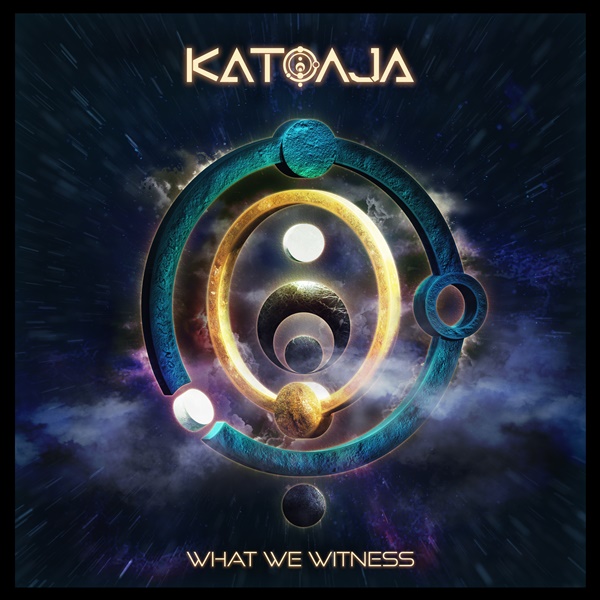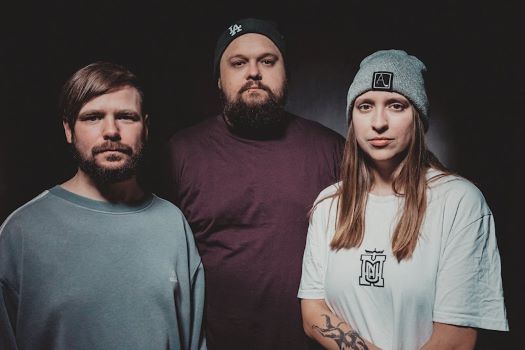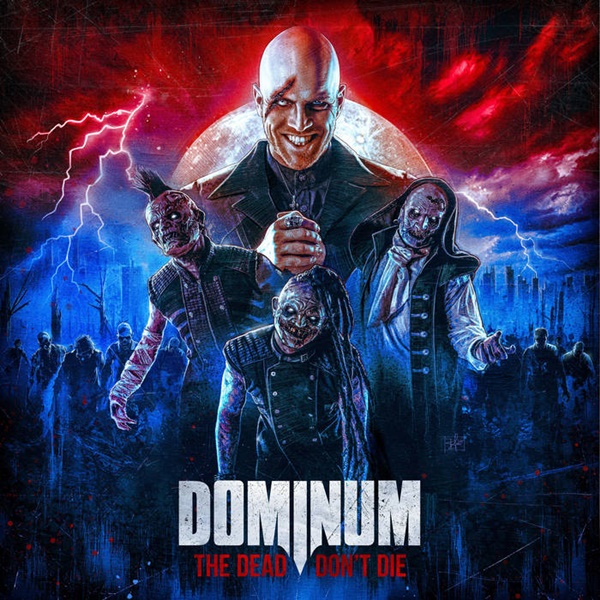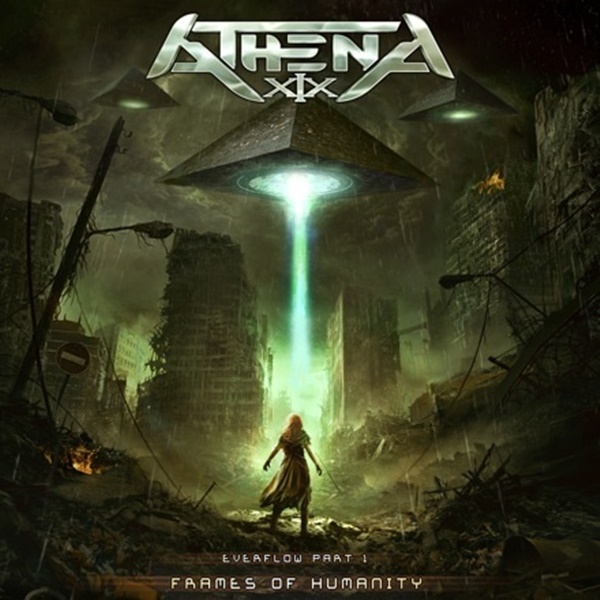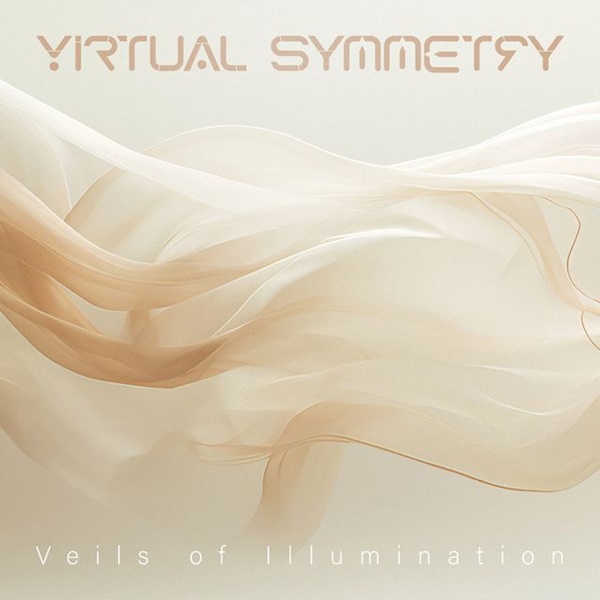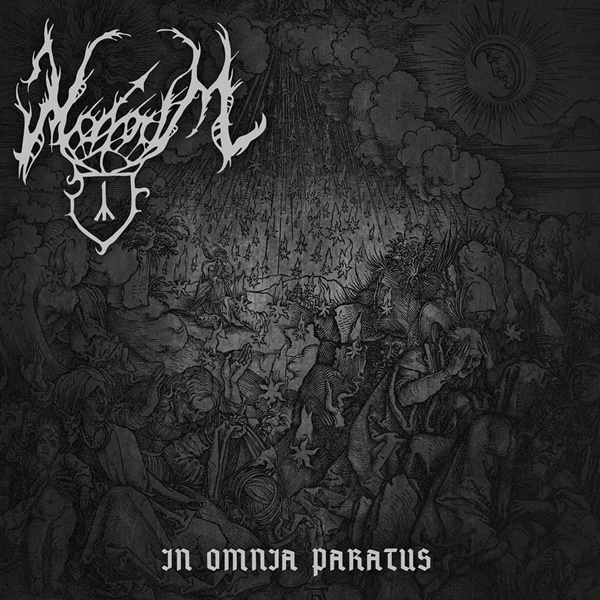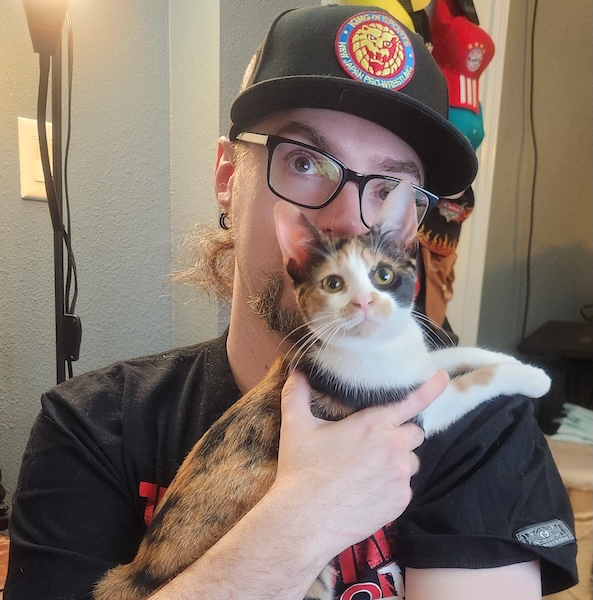We’re back! This year was both quick and long for many reasons. Personally, we dealt with two catastrophic hurricanes that displaced us for close to a month – what we get for living in the Florida hellscape – a huge move, the trashbag of an election, amongst other bits of madness. We’re also planning another move that will hopefully happen in 2025 while trying to sell our old house.
Our ever growing fuzzy family also grew by two cats. One who was found by a good friend, whose family owns a catering company, hiding out in the engine of their business’ van. Our friend wasn’t able to keep him, so we gladly gave the little orange nutball a home. His name is Dougal (Father Ted inspiration completely, due to the whole orange cat shared brain cell thing), and he actually went viral for a moment when the wife caught him on video running into a running shower – not a normal thing for a cat! Our other and most recent kitty was found with her littermates abandoned behind a Wendy’s. A wonderful local rescue took them in and took amazing care of them, and we gave this little one – pictured with me above – a home. Her name is Mabel – named after Mabel Pines from the incredible Gravity Falls – and she’s a spicy little piece of cornbread. I don’t know what I’d do without all of them, and they enrich our lives every day. Our two horses Naru and Mystik are doing great, too. I regretfully forgot to mention them last year, so we must right that wrong!
All the thanks to the DR crew – especially the tireless Matt Coe, and the awesome Katarina McGinn – who got engaged this year, congrats! – as well as the mighty Gehlke, who are the rocks of this site. It was a great year for us, with a spiffy new redesign, and a lot of phenomenal artists covered. Some of my favorite moments this year in music were the couple of interviews that I was able to conduct – Eternal Storm and Resin Tomb both were talks that were a ton of fun and interesting.
We covered a number of shows, including the 2024 Decibel Magazine tour, Powerwolf’s return to North America, and the unreal King Diamond St. Lucifer’s Hospital tour, and a few others. We hope to cover more in the coming year, including possibly a festival or two, if things go our way! Huge shout out to the wife Brittany Barkasi for her incredible live photography for many of our live show reviews!
When it comes down to an end of year wrap-up, it’s been a full calendar of incredible releases. Throughout, we took in everything we can, and as it’s surely evident, we aren’t casual in our music consumption. Investing the proper time to take in an album is important in judging it fairly, and everything we talk about here are works that we took in many, many times to fully understand and appreciate the breadth of the art we’re diving into. Even the stuff that wasn’t particularly favorable!
With that said, we’re not going the traditional route this time around. Usually, it’s a more traditional list, with a few other things tossed in there for good fun. Instead, we’re going to go with a few different categorizations and give a brief listing of what ranked highest. Think of it as an awards ceremony of sorts, but with zero fanfare, and about seven people giving a shit about it. Yeah, seven. If you want to read a more traditional listing from me, check out my feature on No Clean Singing.
A rule for this: no repeat winners/nominations for music-based awards. That means if a band is in one category, they can’t be in another. However, they can win, say, best album artwork and best *insert category here* album. Confusing? Probably. We simply want to spread the love to as many as we can and not allow any one band be too dominant!
As such, there isn’t a sort of real physical trophy that we have to hand out, or anything of that nature. That said, we’re going to borrow a fake award from one of the greatest television shows ever invented – Father Ted. Some of you may not know what in the hell that is, and if you don’t, you can find most – if not all – of the episodes on YouTube. It’s a 90s show about three Irish Catholic priests who are all relegated by the church to an island that’s a backwater dump due to various ridiculous reasons. This is fittingly the Christmas episode, where Ted wins a Golden Cleric award, and delivers an egregiously long speech calling out people that “really fecked me over down the years.” It’s abrasive, edgy, and full of angst – perfect for our little ceremony!
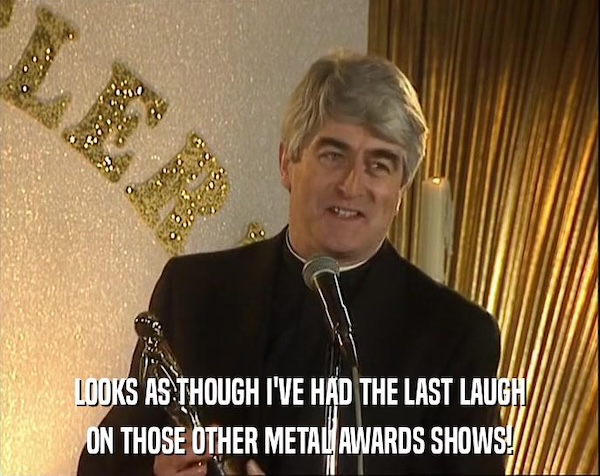
Or something! Of course, we jest, and without further fanfare or rambling, we present to you…my super serious, top favorite music stuff of 2024.
Chillingly dark albums of 2024:
The realm of black metal is where these ears spend a fair amount of their listening time, as you can see by the list of recommendations below. It’s become such a diverse genre, with a wide array of sounds to pick from, of which most have more than a few standouts. However, there can be only one.
The Golden Cleric goes to: Aara – Eiger
One of the top creative forces in black metal, Berg’s flagship project always is steeped in story, with Eiger being based on the mountain of the same name in Switzerland, and the climbing disaster that occurred in 1936 that led to the deaths of four climbers. In typical Aara fashion, it’s a blizzard of sharp black metal prowess with a healthy dose of nuance and atmosphere. Eiger feels cold when listening to it, helping to push the story forward.
Runners-up:
Crushingly vile albums of 2024:
Death metal is another categorization that’s overflowing with varying approaches, and one that is a go-to for my daily listening. Twas a great year for this genre, with an originator leading the pack.
The Golden Cleric goes to: Ulcerate – Cutting the Throat of God
I dove deeply into the latest from Ulcerate; the band that took dissonant, discordant death metal and moved it into a gnarled, darker direction. Their latest delves further into atmospheric, suffocating soundscapes, as they continue to innovate and blaze their own path.
Runners-up:
- Hideous Divinity – Unextinct: The classic technical/brutal hybrid that’s ultra creative with smouldering levels of heft.
- Replicant – Infinite Mortality: Nobody sounds like Replicant, and good luck copying them (poor, I know). They’re on their own planet, and their rules are chaos.
- Devenial Verdict – Blessing of Despair: Psychological and hypnotic while firmly crafting within the disso-death camp.
- Verberis – The Apophatic Wilderness: Another New Zealand project, sharing a drummer with Ulcerate, this release is a disharmonious, slowly creeping fog that engulfs the listener with dread.
- Mitochondrion – Vitriseptome: Grotesque and fascinating, these Canadians had a long hiatus between full-lengths, and dare we say, the 13 year wait was worth it.
- Purgatorial – Fading Whispers of Voidbound Souls: Death metal with a touch of blackened tonality that’s ominous and thoroughly punishing.
- Sacrificial Vein – Black Terror Genesis: One half cavernous and incongruous, the other half whatever the hell they want, this represents death metal done on their own terms.
- Typhonian – The Gate of the Veiled Beyond: Riffy and straightforward, this record is potent and a blast to repeat over and over.
- Crawl – Altar of Disgust: Crusty death metal without the train hopping, these Swedes chainsaw their way forth with their most virulent release yet.
- Phenocryst – Cremation Pyre: A “phenocryst” is a crystal within igneous rock, sometimes formed in magma from a volcano. Fitting for a death metal band who sings about…volcanoes, who are just as fiery and forceful as their subject matter.
- Defacement – Duality
- Carnosus – Wormtales
- Acrid Death – Abominable Presence of Blight
- Feral – To Usurp the Thrones
- Keitzer – Pandemonium Humanitas
Calamitously glum albums of 2024:
Doom as a genre had an interesting year. There wasn’t as high of a volume of top tier releases in the genre this year as the past few, however, the standout releases that we’ve gotten have been incredibly impactful and are amongst the best examples of the slow and mournful sound that these ears are drawn to.
The Golden Cleric goes to: Hamferð – Men Guðs hond er sterk
When a historical event is the subject of a record, my interest is piqued. Hamferð took it deeper, utilizing their native Faroese lore – a 1915 whaling incident in Sandvík where 14 people perished that’s deeply ingrained in the town’s population. The soundtrack is a smothering, intimate affair that will tug at one’s heartstrings hard. Beautiful and memorable.
Runners-up:
- Crypt Sermon – The Stygian Rose: The Philadelphia doom merchants crafted their most sharply written record in a career of the highest of quality, bolstered by individual performances that are among the best that any member has done yet.
- Lowen – Do Not Go to War with the Demons of Mazandaran: Stunning and ambitious, Lowen took me by surprise with their creativity, usage of middle middle eastern sounds and themes, gargantuan riffs, and the incredible voice of Nina Saeidi. There’s no other that sounds like Lowen.
- Officium Triste – Hortus Venenum: Having been at it since 1994, the melodic yet harsh atmospheres by the Dutch ensemble continue to be a leader. Gobs of soulfulness and sorrow abound.
- Endonomos – Endonomos II – Enlightenment: Newer to the scene, Endonomos’ impact on it is unquestionable. Their latest is a downtrodden, tightly weaved trek that’ll leave one breathless.
- Mother of Graves – The Periapt of Absence: Quickly becoming one of the premier death/doom acts, The Periapt of Absence is a memorable album front to back.
- My Dying Bride – A Mortal Binding: Despite the turmoil, the legends still have it. Enough said.
- Tzompantli – Beating the Drums of Ancestral Force: Leaning heavily towards the death side of the death/doom balancing act, the authentic Aztec-inspired Tzompantli delivered what is not only the heaviest doom release that these ears listened to in 2024, but also one that’s truly one of a kind.
- Blóð – Mara: Hypnotic, devastating, and filled with equal parts muck and haunting aura, Mara is a harsh and monstrous record highlighted by vocalist Anna W.’s extreme versatility.
- Ghostheart Nebula – Blackshift: Spacey, vast, and ambient, Ghostheart Nebula’s latest is a complex and despair-filled journey.
- Helevorn – Espectres: Gothic doom from Spain that has never led us astray, Espectres is a melancholic, bleak, and weighty piece that’ll stick with you.
- Oryx – Primordial Sky: Parts drone, sludge, doom, and death, Oryx have conjured a leviathan that’ll stomp craters into the Earth.
Harmoniously melodically crushing albums of 2024:
Melodic death metal, my entry point to extreme metal many years ago, and the primary reason you’re dealing with my nonsense in this capacity. Plenty to wax poetic about in 2024, with a string of adept releases to celebrate.
The Golden Cleric goes to: Night in Gales – Shadowreaper
The million dollar/euro/sterling/whatever question: will this guy ever shut up about Night in Gales? The answer is unequivocally, no. Their historical significance and grasp on the best elements of melodeath continue to age like the finest spirits, and their hot streak continues via the darker and infectious Shadowreaper.
Runners-up:
- Iotunn – Kinship: The second Jón Aldará band represented here, with good reason. Iotunn no doubt went more progressive and soaring with Kinship, with a well-fleshed out concept and songs that strike a chord in their own magical way.
- Nyktophobia – To the Stars: Overflowing with rich landscapes and detailed compositions, the German’s ascended to new heights with this sharp, well-composed record.
- Eternal Storm – A Giant Bound to Fall: Truly progressive, taking creative chances, and seeing the pay off is paramount to the success of Eternal Storm’s massive opus that is A Giant Bound to Fall.
- Livløs – The Crescent King: A varied yet coherent and engrossing offering from the Danish riff machine that is Livløs.
- Upon Stone – Dead Mother Moon: Bursting at the seams with energetic songs and tantalizing instrumentation, Upon Stone will be a name to watch very closely.
- Dark Tranquillity – Endtime Signals: Their legendary reputation precedes, and this release is the band’s most engaging in years from the model for consistency in this realm.
- Withering Surface – Exit Plan: Similar to Night in Gales in the category of not having nearly enough respect given to their name, and have released two exemplary albums since re-forming – the latest Exit Plan embraces both the classic and the contemporary.
- Dark Oath – Ages of Man: Epic melodeath has ironically become a somewhat blaise approach, but Dark Oath breathes plenty of life with a truly original concept and momentous songwriting. More of this, please.
- Andy Gillion – Exilium: The prolific ex-Mors Principium Est songwriter/axeman extraordinaire has been a busy bee, releasing the metal-meets-synthwave Arcade Metal, and now this year with the shredding Exilium; a fierce example of guitar-driven melodic death that’s an utter joy to take in.
Majestically, mind-bendingly soaring albums of 2024:
I have an interesting relationship with power/prog. One of my absolute favorite festivals is ProgPower USA, who puts on one of the best events year upon year filled with exciting, forward-thinking artists. When it comes to new releases in these realms, it’s been a solid year, with some incredible records to make us ponder, though the numbers that really hit the mark for yours truly weren’t overwhelming, there are bonafide gems to be uncovered.
The Golden Cleric goes to: Caligula’s Horse – Charcoal Grace
Simply put, no album this year was more heartfelt and affected me personally more than the latest album by Caligula’s Horse. We’ve had plenty to say about this career-defining opus, so we implore you to dive deeply into this beautiful piece of aural artistry.
Runners-up:
- VOLA – Friend of a Phantom: Witness was near-impossible to follow, and while it remains as the band’s seminal album for now to these ears, Friend of a Phantom took some creative risks that paid off, showing VOLA as a band that doesn’t stand still and will always have that knack for big hooks and effusive melody.
- Fellowship – The Skies Above Eternity: If there was ever a band who sounded like an animated Disney classic soundtrack (they did cover a song from The Lion King, and it was wonderful) with the sweetness of maple syrup, it’s certainly Fellowship. There’s plenty of depth there, however, with The Skies Above Eternity showcasing a band who has assuredly grown substantially, but are still the most exciting and incredibly fun band in power metal.
- Orden Ogan – The Order of Fear: No band embodies the spirit of Blind Guardian – other than the actual band, of course – while carving their own niche like Orden Ogan has. The Order of Fear is undeniable, proving the band’s ascent is in line with the ever increasing quality of their music.
- In Vain – Solemn: Ænigma stands as an all-timer for progressive black/death metal, and while Currents had its moments, it had an impossible task to take on. Solemn stands as the strongest effort that the band has had since said classic, and it’s a creative force that will take the listener on a harrowing trip.
- Powerwolf – Wake Up the Wicked: It’s a Powerwolf album, so we know what we’re getting, and it’s a howling blast of glorious blasphemy that’s catchy, tongue-in-cheek, and bombastic as hell. Don’t think too deeply about this one and have some fun!
- Evergrey – Theories of Emptiness: The preeminent progressive metal band for many, their discography certainty backs up that claim, with Theories of Emptiness boasting a creative verve that has many miles left on the odometer.
- Anciients – Beyond the Reach of the Sun: Vancouver’s Anciients sort of vanished for eight years, and we were ecstatic to see their triumphant return via Beyond the Reach of the Sun. Evidently a great album was definitely not beyond reach; it’s like they never left, and they’ve gifted us their most complex record thus far. Don’t make us wait another eight years again, please!
Violently heavy albums of 2024:
This category doesn’t have a genre attachment. The only requirement is visceral, unmitigated sonic violence. Many bands got the memo, so for those who wish to be smashed and bruised, it’s been your year.
The Golden Cleric goes to: Resin Tomb – Cerebral Purgatory
Sludgy death/grind that’s untamable and damn near impossible to stop spinning. The most aggressive Tim Tam slam you’ll ever experience.
Runners-up:
- Kvadrat – The Horrible Dissonance of Oblivion: Solo black-death by the jack-of-all-trades Ivan Agakechagias that will suck you into a vacuum of hopeless bleakness. Fans of all things dissonant must check this out.
- Alta Rossa – A Defiant Cure: Blackened sludge infused with hardcore’s fervent nature, France’s Alta Rossa is a thinking-person’s brand of destructive endeavor, with a smidgeon of hope shining out amongst the darkness.
- Still – A Theft: You want a fierce audible explosion, you listen to Still. Post-sludge with much to say, done so in a voice overflowing with primal angst.
- Spectral Voice – Sparagmos: Blood Incantation may be getting all of the headlines, but for me, the gem that three of those dudes released this year – along with Black Curse drummer Eli Wendler – is the droning cloud of death/doom known as Spectral Voice and their latest Sparagmos. Their lights out (literally) show at Maryland Deathfest of this album was also all sorts of nuts.
- Ancst – Culture of Brutality: Blackened crust with attitude, this is some heavier than heavy, antagonistic stuff that sticks the landing.
- Ataraxie – Le déclin: Bar none, the weightiest and most vehement funeral doom (laced with a huge dosage of death metal) that’ll be uncovered this year, or really, most years.
- Aberration – Refracture: Death/black with a gnarled twist, Refracture is a grimy, thick wall of pure discordance.
- Wormed – Omegon: Their reputation for mind-mashing brutal/tech death precedes them, and this stands up as one of the most in-depth, slamming machinations the Wormed fellows have forged.
- Apes – Penitence: Black/grind that’s dark and will tear your face off. Sign us up.
- Nekus – Death Apophenia: Cavernous, bleak black/death/doom mashup that’s focused and savage to an immeasurable scale.
Soul-shredding emotive albums of 2024:
This category is reserved for albums that touched the heart in profound ways. You’ll find a fine mixture of tearjerkers below.
The Golden Cleric goes to: Vægtløs – Aftryk
Poetic and heartbreaking, Danish post-black group Vægtløs is the most personal record that we’ve taken in, dealing with the many struggles that vocalist Troels H. Sørensen has sadly experienced – specifically, excruciating loss and trials that he has endured, like his sister to cancer (the song a hopeful dedication to her daughter), the still raw loss of his father over 20 years ago, his aunt’s battle with alcoholism, and a close friend who was diagnosed with terminal cancer, but is still fighting. It’s a challenging album that’s exquisitely written, and taken musically, is amongst the most adept and pulsating post-black/hardcore records out there.
Runners-up:
- Pillar of Light – Caldera: Wildly heavy and burgeoning with downtrodden overtones in a post-doom wrapper that’s utterly unrelenting.
- Midas Fall – Cold Waves Divide Us: This is an album one experiences; one that is also not a simple listen, but will affect your psyche. Also, Elizabeth Heaton’s voice will tear your emotions to bits.
- Counting Hours – The Wishing Tomb: A DR favorite over the years, the masters of melancholy have graced our senses with another powerful offering of dreary, reflective, and intoxicating. They’re the top draw for this style of melodic doom.
- Dark Affliction – Five Stages of Grief: Atmospheric black metal swath with a heavy subject; the five stages of grief. Genuine and complex, Panagiotis Christias has created quite the brave work for us to immerse ourselves within.
- Dawn Treader – Bloom & Decay: Post-blackgaze with an edge, Bloom & Decay is an alluring work that puts a light on all aspects of the human experience with a caring touch.
- Weather Systems – Ocean Without a Shore: Once Anathema split in 2020, it left quite a void. Daniel Cavanagh returns after a long few years of personal struggle to bring us his solo project Weather Systems, which continues the Anathema style of proggy rock atmospheres with that singular touch I adore so deeply.
Fantabulous non-metal of 2024:
Yeah, we listen to music other than metal. Most of which is based in the vast ocean that is electronic music. We’ve covered a few things within this spectrum here in the past, and here’s the best stuff that we thoroughly enjoyed in 2024.
The Golden Cleric goes to: Gost – Prophecy
An originator of the darksynth sound, the seminal Gost has returned to his early roots with Prophecy, which is a punchy, visceral album that’s uncompromising and cathartic.
Runners-up:
- The Anix – Voltage: One of the foremost creative forces in electronic music, The Anix evolves with every release. There’s plenty to unpack within this densely layered, forthright and trippy release that showcases a brilliant artist continuously innovating in their own space.
- At 1980 – Forgot to Remember: Pure 80s, neon-soaked, sappy synthwave, and we love it so. Featuring one of the best vocalists on planet Earth in Josh Dally, this is a shining example of how mesmerizing the genre can be.
- Dance with the Dead – Dark Matter EP: Dance with the Dead were one of – if not the first – band to so seamlessly combine synthwave with metal, and while they’ve been predominantly an instrumental act, their Dark Matter EP is filled with guest vocalists, seeing the band branch out with the expected catchy, fast-paced and delicious results.
- Fury Weekend – Million Flares and Starlights: Belarus’ Ars Nikonov knows how to craft danceable synthwave tunes that are also pure earworms, and his latest Million Flares and Starlights is a furious (see what I did there?) album that doesn’t let up.
- Dan Terminus – Gothic Engine: Another originator in the darker side of synth music, Dan Terminus simply never misses, with Gothic Engine being the most recent example of his impressive consistency.
- Chelsea Wolfe – She Reaches Out to She Reaches Out to She: A highly unique artist whose cathartic, soothingly dreamlike music carries a dark undertone that many here are likely to appreciate. Captivating.
- Timecop1983 – Metropolis EP: Synthwave legend Jordy Leenaerts and his project Timecop1983 are of the most important artists in the style, and the new Metropolis EP is an all-instrumental effort that hits on all facets.
- Red Lokust – Hope is the Last Refuge of the Dying: Aggrotech stalwarts Red Lokust have built their deepest, most forward-thinking record to date; a testament to the genre’s underground strength and staying power.
Surprisingly stunning release of 2024:
Shocks abound this year! The following albums took us by surprise in the best ways conceivable.
The Golden Cleric goes to: Cemetery Skyline – Nordic Gothic
With the folks involved, this shouldn’t be a surprise, but the fact that they’ve created 90s era inspired gothic rock/metal that’s this potent certainly qualifies. Some of the most fun with a record that was had in 2024.
Runners-up:
- Múr – Múr: Having first came across this band by accident via a YouTube video of a live performance, we’ve been waiting on a record from the enigmatic Múr, and the Icelandic ensemble delivered beyond any realistic expectation with a progressive wall of virulent sound that’s hard to label, but is spellbinding all the same.
- Opeth – The Last Will and Testament: Sticking with the Father Ted theme, this meme personified the return of harsh vocals perfectly. Opeth’s most engaging – for yours truly, anyway – album in quite some time, and their first conceptual album since Still Life, this was a surprising and delightful record that has dragged me back into the Opeth world once more.
- Reveals – Attachment, Destruction and Extinction: Though oddly in pre-order status on Bandcamp since May, Indonesian atmospheric black metallers Reveals have created a relentless, fascinating debut that’s totally worthy of a listen.
- Vanessa Funke – Void: The multi-talented instrumentalist is a busy creator, with Void being her third solo effort, blending melodic death, black, gothic, and other styles together in a satisfyingly potent manner, resulting in an album that we re-revisited plenty.
- Blighted Eye – Agony’s Bespoke: Progressive death metal merchants Blighted Eye took me out of the blue with Agony’s Bespoke; a blitz of a concept album that’s got more turns than a road deep in the mountains.
Creatively ambitious album of 2024:
These albums were the most creative, singular records of the year; whether musically, thematically, or just plain freaking odd, these all left an indelible mark.
The Golden Cleric goes to: Kanonenfieber – Die Urkatastrophe
To those wondering why this wasn’t in the black metal section, you can relax. Another album I reviewed in grisly detail, Kanonenfieber is a project unto themselves. A black/death work that’s momentous in stature, and met that moment with gusto.
Runners-up:
- Veilburner – The Duality of Decapitation and Wisdom: Black metal that’s gloriously weird and out there, this conceptual release based around the number seven (number of songs, length of each song, etc.) is quite the wondrous trip.
- Schammasch – The Maldoror Chants: Old Ocean: This being more reserved in some ways, with plenty of breathing room throughout, the surreal avant-garde black metal horde of Schammasch have yet again dazzled like only they can.
- Hail Spirit Noir – Fossil Gardens: The always offbeat and psychedelic black metal offerings of Greece’s Hail Spirit Noir triumphed once again with a dazzling album that’s a little heavier than other recent releases, but no less odd and supremely different.
- Hauntologist – Hollow: Post-black/rock from members of MGLA that’s quite the experience; ghostly and irreverent.
- Bedsore – Dreaming the Strife for Love: Jazzy, rife with organs and 70s psychedelic principles, Bedsore surprised us with their atmospheric death metal offerings of the most strange varieties. Yet, it works so well that it’s difficult to contemplate.
- Sgàile – Traverse the Bealach: Based on a Scottish nomad’s fictitious travels in a post-apocalyptic world, this progressive work takes elements of pots-metal and many others to make a singular sound that morphs as the tale unfolds. Tony Dunn outdid himself on this release.
- Solbrud – IIII: The swansong of a Danish great, Solbrud’s enormous final album IIII, was an ambitious undertaking that’s totally in character for the band’s nature. Split into four parts representing an element – earth, water, air, and fire – with each of the four band members writing one of those parts. This results in 94 minutes of dynamic black metal that asks a lot, but gives even more.
Electric EPs of 2024:
The short players need some love, too! There were a number of quality EPs that were bestowed upon us – some serving as potential bridges towards a new album, some completely fresh – that are absolutely worth a small sliver of your time.
The Golden Cleric goes to: Golgothan Remains – Bearer of Light, Matriarch of Death
Australian death metal is in a healthy spot, and Golgothan Remains is one such act whose work has been admirable. Their latest EP is a four song massacre of huge riffs. Hopefully a new album won’t be far off.
Runners-up:
- Glassbone – Deaf to Suffering: Among the most forthright and barbaric releases on any format, the hardcore/death metal fusion is a potent force that’s only warming up. Sick art by Paolo Girardi to top it off, too!
- Whispers – Yom-Ma-Lok: Crunchy, slamming hardcore from Thailand, Whispers’ threw this incredibly strong EP in December, and it’s been one that we’ve dedicated plenty of time to, getting better with each rotation. This is how it’s done.
- Obsidian Tongue – The Stone Heart: Extremely unique, organic progressive black metal that hopefully are signs to come from this underrated act.
- Kruelty – Profane Usurpation: The angst-ridden Japanese death/doom act Kruelty is in full forward motion – this time with an EP to quickly follow their critically acclaimed Untopia album from last year. Expect more violence from this enticing romp.
- Hexis – Relictus / Umbrae: The relentless road warriors Hexis have a two song EP with remaining songs that weren’t used on the beastly Aeternum album in 2022. Expect a similar blackened sludge vibe here, with hopefully another album in the near future.
- Absorb – Smog: The Canadian death/doom consortium made some tweaks to their output, vying for an increase in aggression and a thicker sound profile. The resulting Smog EP is a fitting moniker for their huge Primitive Man-esque onslaught, setting the table for more.
- Morokh – X: Opting for a black metal foundation infused with hardcore energy, Russia’s Morokh didn’t wait long to release more music after their successful Insomnia album via X; a blazing inferno of dread and swaths of atmosphere to boot.
Continue to page 2 for the rest of our overly indulgent awards, including label awards, album art, music videos, live shows, and the silliest release of the year!


